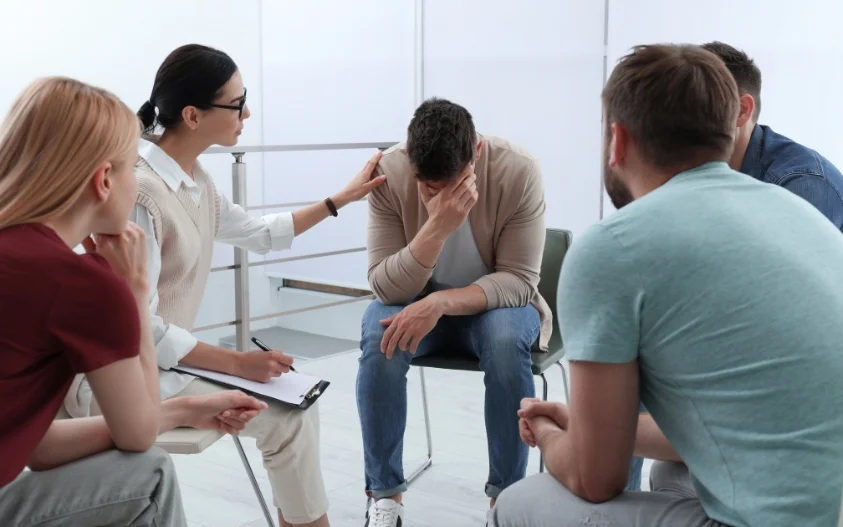24/7 Helpline:
(866) 899-221924/7 Helpline:
(866) 899-2219
Learn more about PTSD Treatment centers in Kite
PTSD Treatment in Other Cities

Other Categories
Other Insurance Options

Aetna

Carleon

Health Partners

Coventry Health Care

Optima

Private insurance

Health Net

AllWell

Access to Recovery (ATR) Voucher

Medical Mutual of Ohio

Cigna

Self-pay options

Regence

Excellus

Covered California

Group Health Incorporated

Optum

Premera

BlueShield

Magellan












